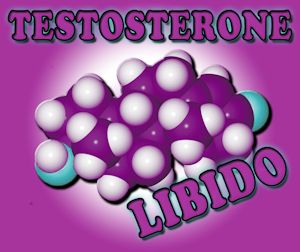Introduction to Peptides in Veterinary Medicine
Peptides, short chains of amino acids, are emerging as a significant tool in the realm of veterinary medicine. Their versatility and specificity make them ideal for a variety of applications, ranging from diagnostics to therapeutics. As American males increasingly engage with their pets' health, understanding the role of peptides can enhance the care they provide to their animal companions.
Diagnostic Applications of Peptides
In the veterinary field, peptides are increasingly utilized for diagnostic purposes. For instance, certain peptides can serve as biomarkers for diseases such as cancer or heart disease in animals. By measuring the levels of these peptides in blood or other bodily fluids, veterinarians can diagnose conditions earlier and more accurately. This early detection is crucial for improving outcomes in pets, a priority for pet owners who view their animals as family members.
Therapeutic Uses of Peptides
The therapeutic potential of peptides in veterinary medicine is vast. One notable application is in the treatment of diabetes in cats and dogs. Insulin, a peptide hormone, is used to manage diabetes in pets, helping to regulate their blood sugar levels effectively. Additionally, peptides are being explored for their antimicrobial properties, offering new ways to combat infections in animals without contributing to antibiotic resistance, a growing concern in both human and veterinary medicine.
Peptides in Regenerative Medicine
Regenerative medicine is another exciting area where peptides show promise. For example, certain peptides can stimulate tissue repair and regeneration, which is particularly beneficial in treating wounds and injuries in animals. This aspect of peptide therapy is especially appealing to American males who are often involved in outdoor activities with their pets, where injuries can occur. Enhancing the body's natural healing processes can lead to faster recovery times and better overall health for their animals.
Challenges and Future Directions
Despite their potential, the use of peptides in veterinary medicine faces several challenges. The high cost of peptide synthesis and the need for precise delivery systems are significant hurdles. However, ongoing research is focused on overcoming these obstacles. The future may see the development of more affordable and efficient peptide-based treatments, which could revolutionize veterinary care.
Conclusion
The application of peptides in veterinary medicine represents a promising frontier for improving animal health. As American males continue to prioritize the well-being of their pets, understanding and embracing these advanced treatments can lead to better health outcomes for their beloved animals. The journey of peptides from the laboratory to the clinic is just beginning, and the potential benefits for veterinary care are immense.
In summary, peptides offer a multifaceted approach to enhancing the health and well-being of pets, aligning with the growing trend among American males to seek out the best possible care for their animal companions. As research progresses, the role of peptides in veterinary medicine is likely to expand, offering new hope and solutions for pet health challenges.
Contact Us Today For A Free Consultation

- Peptides and Epigenetics: Enhancing Men's Health and Disease Prevention Strategies [Last Updated On: February 20th, 2025] [Originally Added On: February 20th, 2025]
- Exploring the Advancements in Peptide Therapy for Allergy Management in American Males [Last Updated On: February 28th, 2025] [Originally Added On: February 28th, 2025]
- An Overview of Peptides [Last Updated On: March 2nd, 2025] [Originally Added On: March 2nd, 2025]
- Exploring the Role of Bioactive Peptides in Diabetes Management: Therapeutic Potential and Challenges [Last Updated On: March 3rd, 2025] [Originally Added On: March 3rd, 2025]
- Unveiling the Anti-Aging Secrets: The Role of Peptides in Modern Medicine [Last Updated On: March 4th, 2025] [Originally Added On: March 4th, 2025]
- Exploring Peptides as Therapeutic Agents for Male Neurological Disorders [Last Updated On: March 4th, 2025] [Originally Added On: March 4th, 2025]
- Advancements in Peptide-Based Immunotherapy for American Male Cancers [Last Updated On: March 5th, 2025] [Originally Added On: March 5th, 2025]
- Exploring Peptide Therapeutics in Treating Diseases Prevalent Among American Males [Last Updated On: March 6th, 2025] [Originally Added On: March 6th, 2025]
- Unveiling the Potential of Antimicrobial Peptides in Modern Medicine: A Comprehensive Overview [Last Updated On: March 7th, 2025] [Originally Added On: March 7th, 2025]
- The Transformative Power of Peptides in Men's Skincare: A Comprehensive Guide [Last Updated On: March 8th, 2025] [Originally Added On: March 8th, 2025]
- Revolutionizing Male Health: The Power of Biomimetic Peptides in Regenerative Medicine [Last Updated On: March 9th, 2025] [Originally Added On: March 9th, 2025]
- Advancements in Therapeutic Proteins and Peptides: A Focus on Developments and Challenges for American Males [Last Updated On: March 12th, 2025] [Originally Added On: March 12th, 2025]
- Revolutionizing Health: The Role of Peptides in Precision Medicine for American Males [Last Updated On: March 13th, 2025] [Originally Added On: March 13th, 2025]
- Unveiling the Power of Peptides in Wound Healing and Tissue Regeneration [Last Updated On: March 15th, 2025] [Originally Added On: March 15th, 2025]
- Peptides: Revolutionizing Metabolic Health Management for American Males [Last Updated On: March 16th, 2025] [Originally Added On: March 16th, 2025]
- Peptides and Gene Therapy: A New Frontier in Men's Health Treatment [Last Updated On: March 16th, 2025] [Originally Added On: March 16th, 2025]
- Peptides Revolutionize Respiratory Health Management in American Men [Last Updated On: March 18th, 2025] [Originally Added On: March 18th, 2025]
- Peptides: A Targeted Approach to Treating Infections in American Males [Last Updated On: March 18th, 2025] [Originally Added On: March 18th, 2025]
- Peptide Therapies: A New Frontier in Obesity Management for American Males [Last Updated On: March 19th, 2025] [Originally Added On: March 19th, 2025]
- Peptide and Stem Cell Synergy: Revolutionizing Regenerative Medicine for American Males [Last Updated On: March 19th, 2025] [Originally Added On: March 19th, 2025]
- Peptide Therapeutics: Revolutionizing Chronic Disease Management in American Men [Last Updated On: March 19th, 2025] [Originally Added On: March 19th, 2025]
- Peptides Revolutionizing Diagnosis and Drug Delivery for American Males' Health [Last Updated On: March 20th, 2025] [Originally Added On: March 20th, 2025]
- Peptide Vaccines: Progress, Challenges, and Implications for American Males' Health [Last Updated On: March 21st, 2025] [Originally Added On: March 21st, 2025]
- Peptides: A New Frontier in Mental Health Treatment for American Men [Last Updated On: March 21st, 2025] [Originally Added On: March 21st, 2025]
- Peptide Therapies: A New Frontier in Treating Rheumatic Diseases for American Males [Last Updated On: March 22nd, 2025] [Originally Added On: March 22nd, 2025]
- Peptides Revolutionizing Men's Health: Hormones, Muscle, Aging, and Mental Well-being [Last Updated On: March 22nd, 2025] [Originally Added On: March 22nd, 2025]
- Peptides Revolutionizing Eye Health: A New Frontier for American Males [Last Updated On: March 22nd, 2025] [Originally Added On: March 22nd, 2025]
- Peptides in Sports Medicine: Enhancing Muscle Growth and Recovery for American Males [Last Updated On: March 22nd, 2025] [Originally Added On: March 22nd, 2025]
- Peptide Therapies in Transplant Medicine: Advancements and Impact on American Males [Last Updated On: March 23rd, 2025] [Originally Added On: March 23rd, 2025]
- Peptides and Male Fertility: Exploring Therapeutic Potential and Clinical Applications [Last Updated On: March 23rd, 2025] [Originally Added On: March 23rd, 2025]
- Peptides: A Promising Approach to Managing Liver Disorders in American Males [Last Updated On: March 23rd, 2025] [Originally Added On: March 23rd, 2025]
- Peptide Therapies: Enhancing Bone Health in American Males [Last Updated On: March 24th, 2025] [Originally Added On: March 24th, 2025]
- Peptide Drugs in Pediatrics: Targeted Therapy and Future Prospects [Last Updated On: March 24th, 2025] [Originally Added On: March 24th, 2025]
- Peptides: A Promising New Frontier in Treating Hair Loss in American Males [Last Updated On: March 24th, 2025] [Originally Added On: March 24th, 2025]
- Peptides in Dentistry: Enhancing Oral Health for American Males [Last Updated On: March 24th, 2025] [Originally Added On: March 24th, 2025]
- Peptide-Based Anti-Venom: A Safer Future for American Males at Risk of Snakebites [Last Updated On: March 24th, 2025] [Originally Added On: March 24th, 2025]
- Peptide Radiopharmaceuticals: Revolutionizing Prostate Cancer Management in American Males [Last Updated On: March 25th, 2025] [Originally Added On: March 25th, 2025]
- Peptides: A New Frontier in Epilepsy Treatment for American Males [Last Updated On: March 25th, 2025] [Originally Added On: March 25th, 2025]
- Stem Cells and Peptides: Revolutionizing Men's Health and Regeneration [Last Updated On: March 25th, 2025] [Originally Added On: March 25th, 2025]
- Peptides: Unlocking Health and Performance Benefits for American Males [Last Updated On: March 25th, 2025] [Originally Added On: March 25th, 2025]
- Topic Peptides: A Targeted Approach to Gastrointestinal Disorder Management [Last Updated On: March 25th, 2025] [Originally Added On: March 25th, 2025]
- Peptide-Based Biomarkers Revolutionizing Men's Health Diagnostics [Last Updated On: March 25th, 2025] [Originally Added On: March 25th, 2025]
- Peptide Nanotechnology: Revolutionizing Medicine for American Men's Health [Last Updated On: March 25th, 2025] [Originally Added On: March 25th, 2025]
- Peptide-Enriched Skincare: Enhancing Men's Grooming with Science [Last Updated On: March 25th, 2025] [Originally Added On: March 25th, 2025]
- Peptides: A New Hope for American Men with Neurodegenerative Diseases [Last Updated On: March 25th, 2025] [Originally Added On: March 25th, 2025]
- Peptide-Based Biosensors: Revolutionizing Health Monitoring for American Males [Last Updated On: March 26th, 2025] [Originally Added On: March 26th, 2025]
- Peptides: A New Frontier in Managing Neuropathic Pain for American Men [Last Updated On: March 26th, 2025] [Originally Added On: March 26th, 2025]
- Peptides: A Promising Solution to Antibiotic Resistance in American Males [Last Updated On: March 26th, 2025] [Originally Added On: March 26th, 2025]
- Peptide Therapeutics: A New Hope for American Males with Rare Diseases [Last Updated On: March 26th, 2025] [Originally Added On: March 26th, 2025]
- Peptide-Based HIV Vaccines: Advances and Implications for American Males [Last Updated On: March 26th, 2025] [Originally Added On: March 26th, 2025]
- Peptides and Gut Health: Benefits for American Males [Last Updated On: March 26th, 2025] [Originally Added On: March 26th, 2025]
- Peptides Revolutionizing Endocrinology and Men's Health in America [Last Updated On: March 27th, 2025] [Originally Added On: March 27th, 2025]
- Peptides: A New Frontier in Cardiovascular Disease Prevention for American Males [Last Updated On: March 27th, 2025] [Originally Added On: March 27th, 2025]
- Peptide Bioinformatics: Enhancing Precision Medicine for American Males' Health [Last Updated On: March 27th, 2025] [Originally Added On: March 27th, 2025]
- Peptides Revolutionize Trauma Care for American Males: Healing and Recovery Advances [Last Updated On: March 27th, 2025] [Originally Added On: March 27th, 2025]
- Peptide-Enhanced Photodynamic Therapy: A Targeted Approach for American Males' Health [Last Updated On: March 27th, 2025] [Originally Added On: March 27th, 2025]
- Peptides: A Promising Alternative for Managing Inflammation in American Males [Last Updated On: March 28th, 2025] [Originally Added On: March 28th, 2025]
- Peptides in Men's Health: Cell-Penetrating Advances for Targeted Therapies [Last Updated On: March 28th, 2025] [Originally Added On: March 28th, 2025]
- Bioactive Peptides: Enhancing Men's Health from Cardiovascular to Mental Well-being [Last Updated On: March 28th, 2025] [Originally Added On: March 28th, 2025]
- Peptide Vaccines in Veterinary Medicine: Safety, Efficiency, and Future Prospects [Last Updated On: March 28th, 2025] [Originally Added On: March 28th, 2025]
- Peptide Therapy: Targeting Hematological Disorders in American Males with Topic Peptides [Last Updated On: March 28th, 2025] [Originally Added On: March 28th, 2025]
- Peptide-Based Toxicology: Enhancing Toxin Detection and Mitigation for American Males [Last Updated On: March 28th, 2025] [Originally Added On: March 28th, 2025]
- Peptide-Polymer Composites: Revolutionizing American Male Health Treatments [Last Updated On: March 29th, 2025] [Originally Added On: March 29th, 2025]
- Peptides: A Promising Frontier in Stroke Therapy for American Males [Last Updated On: March 31st, 2025] [Originally Added On: March 31st, 2025]
- Peptides: A Promising Treatment for Acute Kidney Injury in American Males [Last Updated On: April 1st, 2025] [Originally Added On: April 1st, 2025]
- Peptide Drug Conjugates: Targeted Therapy Advancements for Men's Health [Last Updated On: April 3rd, 2025] [Originally Added On: April 3rd, 2025]
- Peptides Revolutionize Burn Care: Enhancing Healing and Reducing Scars in American Males [Last Updated On: April 3rd, 2025] [Originally Added On: April 3rd, 2025]
- Peptides: A Promising New Approach to Treat Substance Abuse in American Males [Last Updated On: April 4th, 2025] [Originally Added On: April 4th, 2025]
- Peptides in Geriatric Medicine: Enhancing Health and Vitality in Aging American Men [Last Updated On: April 5th, 2025] [Originally Added On: April 5th, 2025]
- Peptide Therapy: A New Hope for Osteoporosis in American Males [Last Updated On: April 8th, 2025] [Originally Added On: April 8th, 2025]
- Peptide Therapeutics: A New Frontier in Pulmonary Care for American Men [Last Updated On: April 9th, 2025] [Originally Added On: April 9th, 2025]
- Peptide Therapy: A Promising Approach for Autoimmune Diseases in American Males [Last Updated On: April 9th, 2025] [Originally Added On: April 9th, 2025]
- Peptides in Veterinary Dermatology: Promises, Challenges, and the Role of American Male Pet Owners [Last Updated On: April 9th, 2025] [Originally Added On: April 9th, 2025]
- Peptide Therapy Revolutionizes Post-Operative Recovery for American Males [Last Updated On: April 9th, 2025] [Originally Added On: April 9th, 2025]
- Peptide Therapy for Ocular Infections in American Males: Mechanisms and Benefits [Last Updated On: April 9th, 2025] [Originally Added On: April 9th, 2025]
- Peptide Therapies: Targeting Prostate Cancer with Precision in American Males [Last Updated On: April 9th, 2025] [Originally Added On: April 9th, 2025]
- Peptide Therapy: A Promising Future for Treating Depression in American Men [Last Updated On: April 11th, 2025] [Originally Added On: April 11th, 2025]
- Peptides: Key to Fighting COVID-19 in American Males [Last Updated On: April 12th, 2025] [Originally Added On: April 12th, 2025]
- Peptide Therapies: A Targeted Approach to Treating Genetic Disorders in Males [Last Updated On: April 13th, 2025] [Originally Added On: April 13th, 2025]
- Peptides: A New Frontier in Treating Male Infertility in the United States [Last Updated On: April 14th, 2025] [Originally Added On: April 14th, 2025]
Word Count: 479





















